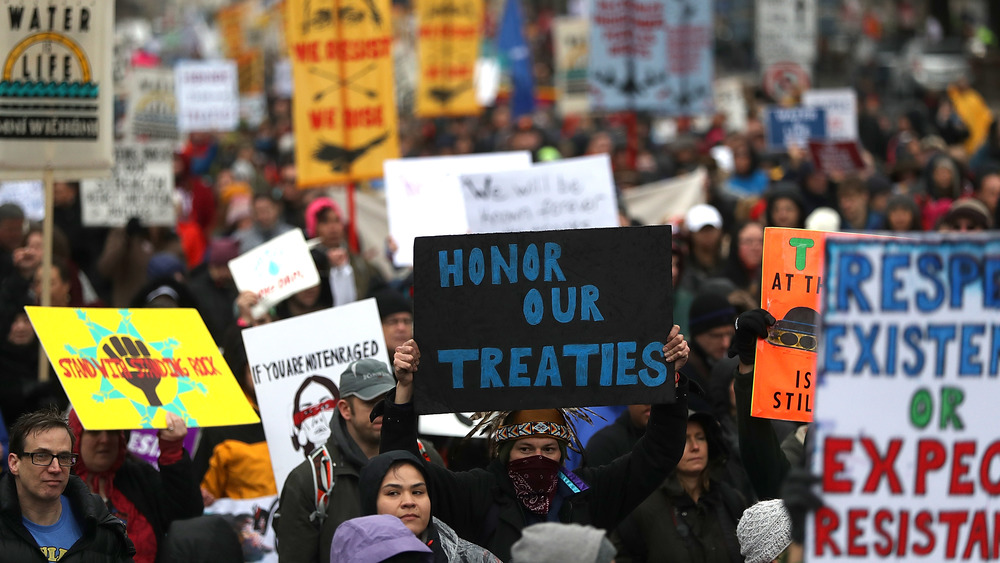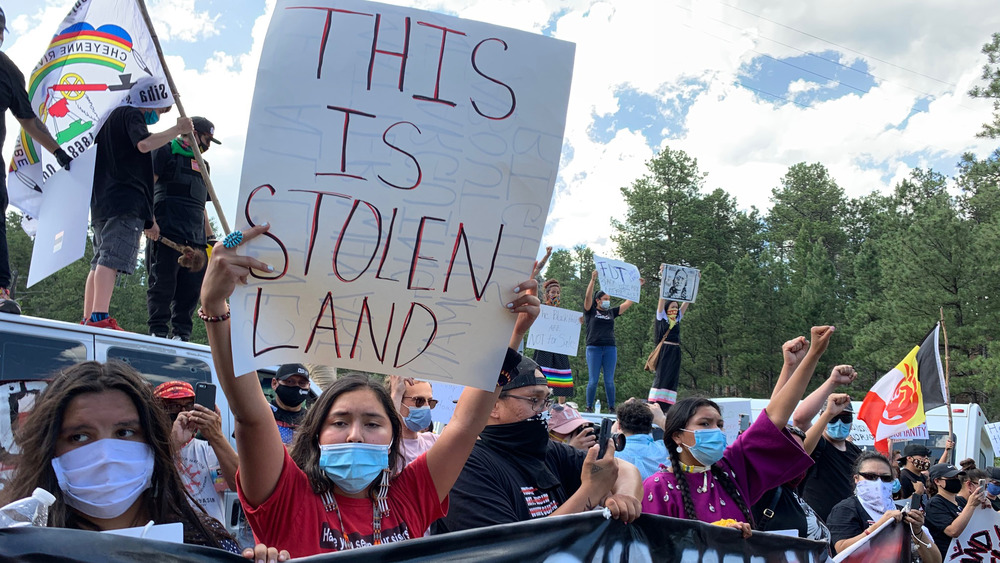Here's What Would Happen If The US Honored Its Treaties With Native Americans
The United States has a long history of welshing on treaties it has signed with Native American peoples. According to History.com, 368 treaties were signed from 1778 to 1871, each on the basis that the tribes were independent, self-governing nations. However, as Europeans continued to expand their reach into territories previously occupied by Native Americans, justifying the westward expansion via the bogus idea of manifest destiny, the growing nation time and again failed to hold up its end of the bargain.
For example, a 1778 treaty signed by the Lenape people, at Fort Pitt, Pennsylvania — in which both sides promised to maintain a friendly and supportive relationship allied against the British — was broken when militiamen from the state slaughtered almost 100 Lenape people in 1872. Although they claimed to believe that the Lenape had attacked white settlers, they killed mostly women and children. One of the most famously reneged treaties was the 1868 Fort Laramie Treaty, which gave the Sioux people exclusive rights to the Black Hills region of South Dakota. The United States promptly released itself of all contractual obligations after gold was discovered in the area. The dispute led to the famous resistance fight known as the Battle of the Little Bighorn, to which the government responded by sending a flood of troops to the region. By then the United States had simply stopped signing treaties with Native Americans altogether. But what would it look like if the government actually made good on all those contracts it signed?
Native American scholars, activists, and leaders weigh in on what would happen if the US honored its treaties
In 2019, Vox interviewed several Native American scholars, activists, and community leaders to get their opinions of what honoring those hundreds of treaties would actually look like. One of the primary and most obvious ways the United States could do that would be to give back land taken from Indigenous tribes. "If we are truly going to honor the treaties, we have to center Indigenous histories, support self-determination, and build decolonized futures by giving back stolen land," said Dr. Cutcha Risling Baldy of the Hoopa Valley Tribe in California.
Karen Diver, of the Fond du Lac Band of Lake Superior Chippewa, said that to honor the treaties, the United States would also have to give tribal nations the right to fully self-govern. It would also have to provide funding in compensation for what tribes gave in terms of land. Poverty, crime, poor health, and other societal woes plague Native American reservations, and funding is required to combat them.
Other commitments the federal government must fulfill include honoring rights to hunting, fishing, and harvesting promised in treaties and allowing tribal nations full control of the resources on their lands. And Liz Medicine Crow of the Haida and Tlingit Nations said that the onus is not just on the government. U.S. citizens should also educate themselves on these issues in order for justice to truly be served.

